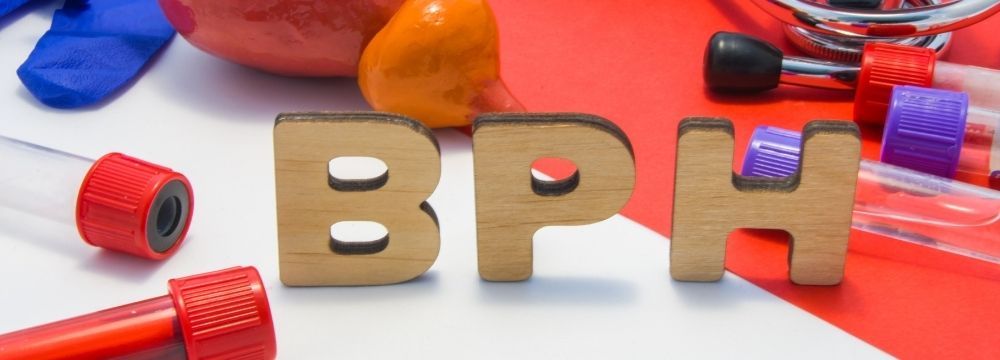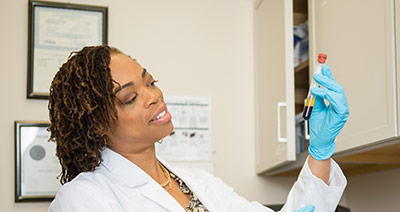Supplementing Nitric Oxide – A Natural Therapy for Erectile Dysfunction?

As we age, there is an inevitable decline in the ability to achieve an erection. This is simply because erectile function depends on blood flow to the penis, and as a man ages, the circulatory system becomes less efficient. This is also why we can’t perform in sports or endurance in our later years the same way we did in our teens, 20s, or 30s.
 With that said, some men begin to lose their erectile function earlier, and we see patients as young as 30 or 40 who have concerns about their ability to achieve and maintain an erection during sex. At this point, there is a continuum of care that almost every ED patient will follow. This begins with an evaluation of the root cause of the problem, and the answer may include any combination of psychological therapy (for a small number of patients), lifestyle change, and ED medications like Sildenafil and Tadalafil. If these options fail, we move on to injection therapy or a penile implant for severe cases of ED.
With that said, some men begin to lose their erectile function earlier, and we see patients as young as 30 or 40 who have concerns about their ability to achieve and maintain an erection during sex. At this point, there is a continuum of care that almost every ED patient will follow. This begins with an evaluation of the root cause of the problem, and the answer may include any combination of psychological therapy (for a small number of patients), lifestyle change, and ED medications like Sildenafil and Tadalafil. If these options fail, we move on to injection therapy or a penile implant for severe cases of ED.
Rezum: What to Expect

REZUM therapy is a minimally invasive, in-office, and non-surgical procedure to shrink an enlarged prostate due to benign prostatic hyperplasia or BPH. Heat generated by radiofrequency waves is delivered to the prostate through a needle that emits water droplets that generate steam. This allows for a rapid treatment that has the ability to expand but will not go beyond the anatomical boundary of the prostate itself.
The REZUM starts with a transrectal ultrasound which will be used to take a picture of the prostate, determine its dimensions, and inject lidocaine as local anesthesia. This is a very well-tolerated step akin to numbing before a dental procedure and is very quick. The patient will then be repositioned with legs in stirrups and the REZUM can commence.
Can I Take ED Meds Forever?

Erectile dysfunction most often has a slow progression, where patients initially have occasional trouble achieving or maintaining an erection, followed by subsequent difficulty finishing. Eventually, the condition becomes troublesome enough that without intervention, a satisfying, sex life is not possible. Of course, once the patient first realizes they have a problem, the psychological effects are often as problematic as the physical ones.
 While the prospect of taking medication to achieve an erection can be dispiriting, patients need to know that they are not alone. Around 50% of all men over 60 have trouble attaining or maintaining their erection, and those that opt for medical therapy as a front-line attack on the condition can often regain a satisfying sex life immediately. Further, with generics like sildenafil and tadalafil on the market, the cost of this improvement in sexual function is minimal when compared to when these drugs were on-patent (Viagra and Cialis).
While the prospect of taking medication to achieve an erection can be dispiriting, patients need to know that they are not alone. Around 50% of all men over 60 have trouble attaining or maintaining their erection, and those that opt for medical therapy as a front-line attack on the condition can often regain a satisfying sex life immediately. Further, with generics like sildenafil and tadalafil on the market, the cost of this improvement in sexual function is minimal when compared to when these drugs were on-patent (Viagra and Cialis).
Comparing Tadalafil (Generic Cialis) and Sildenafil (Generic Viagra)

When patients come to us looking for relief from their erectile dysfunction, they are faced with a preliminary decision of which medication, tadalafil or sildenafil, is better. Back in the day, when these medications were still on patent AND named Cialis and Viagra, respectively, they were very costly. These were the days of fighting with and often losing to insurance companies. Now that generics are available, so many more people can take advantage of these great, highly effective drugs. We often suggest that patients taking ED medications for the first time try both separately to see which works best for them with the fewest side effects. Ultimately, with prices as low as they are, there’s little financial risk in seeing which is best for our patient’s unique circumstances.
Treating Large Prostates (>80g) for BPH

Benign Prostatic Hyperplasia (BPH) or enlarged prostate is a concern that most men will experience as they age. On average, about 50% of men over 50 and 80% of men over 80 will experience the lower urinary tract symptoms associated with prostatic enlargement. Because of the nature of this condition, many novel procedures have tried to address the limitations of their predecessors. Some have succeeded, while others have fallen out of favor.
In the absence of more serious medical complications, Dr. Engel always focuses on medical therapy as a first line of treatment for most cases of an enlarged prostate. However, if initial medical therapy does not offer the relief the patient expects, if there are side effects, or if the patient simply does not want to be on chronic medication, we often move on to offering minimally invasive BPH therapies that can be quick, effective, and have minimal side effects. However, some patients will need surgical intervention such as robotic simple prostatectomy or HoLEP (Holmium laser enucleation of the prostate) as the procedure of choice when the prostatic enlargement is extreme. The prostate is measured in grams; we consider a large prostate to be anything over 80g, and Dr. Engel has treated prostates of up to 400g. Continue reading
Welcome Dr. Tobon
 Dr. Engel is pleased to announce the arrival of Dr. Andrew Tobon to Urologic Surgeons of Washington. Dr. Tobon’s education and training are truly first-rate, and he has been practicing all areas of urology for nearly 29 years.
Dr. Engel is pleased to announce the arrival of Dr. Andrew Tobon to Urologic Surgeons of Washington. Dr. Tobon’s education and training are truly first-rate, and he has been practicing all areas of urology for nearly 29 years.
His skill set complements Dr. Engel’s perfectly, particularly in the area of complex percutaneous kidney stone management.
As Dr. Engel is based primarily in the downtown location, Dr. Tobon will be mostly in our Chevy Chase location, just as Dr. Losee was. He is the medical director of our urologic urgent care and, as such, will be available for same-day appointments alongside Ndidi Okanu, NP.
Welcome, Dr. Tobon!
Why Hydration Is So Important in Urology
As you probably know, the body is composed of 70% water. It’s one of the reasons why we can’t last more than a few days without water, but we can last for weeks without food. You can imagine. Therefore, hydration is key to a healthy body, including a healthy urinary system. But, what exactly does water do for our urinary system, and how do we know we’re getting enough of it?

First, water is critically important for every cell and structure in the body. Water makes everything work better, from bones and cartilage to tendons and muscles. Dehydration affects the brain and body at almost every level.
TUNA After a TURP
Transurethral Needle Ablation or TUNA is a safe and effective in-office therapy to treat benign prostatic hyperplasia / BPH. Dr. Engel is one of the leading users of this technology across the entire United States. One of the great benefits of using TUNA is its versatility. A TUNA can be likened to a free swing – where downtime is minimal, and the procedure does not preclude the use of other treatment options after that. But what about the other way around? For example, can a TUNA be performed after a TURP or transurethral resection of the prostate?

Dr. Engel Joined “Great Day Washington” – Discusses Erectile Dysfunction (ED)
Dr. Engel joined “Great Day Washington” on WUSA 9 to discuss erectile dysfunction (ED) and treatment options including inflatable penile prostheses. Dr. Engel told viewers about the distinction between ED caused by prostate cancer surgery and radiation, for which medication is relatively ineffective; and ED caused by other problems and/or aging. For patients recovering from prostate surgery or radiation, an inflatable penile prosthesis is often an excellent option, allowing them to have natural, relatively spontaneous erections using a device that is completely hidden within the anatomy.
Cystoscopy – A Patient’s Perspective
A cystoscopy is an important test, used by your urologist, to examine the inside of the bladder. It’s an outpatient procedure, which means you may be at your doctor’s office, a hospital, or clinic and go home the same day. This procedure lets your doctor check the complete length of your urethra and the bladder for cancerous or pre-cancerous polyps, narrow areas called strictures, abnormal growths, and other problems. Your urologist will insert a thin, lighted instrument called a cystoscope into the bladder through the urethra.The procedure generally takes about 15 to 20 minutes.






